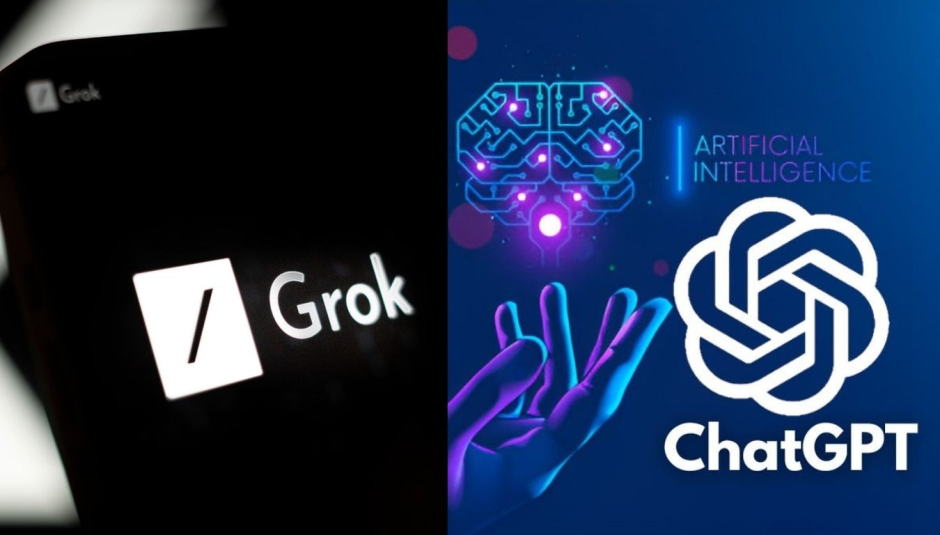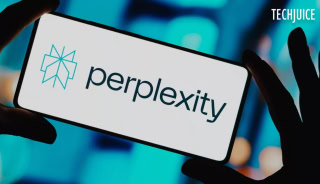Grok AI vs. ChatGPT

Conversational AI is a technological paradigm shift that is reshaping the way companies and consumers interact. Grok AI and ChatGPT are two such platforms; their huge language models determine their different capabilities. Knowing the differences between Grok AI and ChatGPT is crucial in light of the growing demand for AI that is more intelligent, adaptable, and human-like. This article compares Grok AI vs. ChatGPT in every way possible, looking specifically at their respective technologies, applications, users, and future prospects.
Grok AI
Grok AI is the next generation of conversational AI; it offers better, more accurate, and more contextualized responses in a wide variety of contexts. It was built using cutting-edge tech and is meant to include them all, redefining how machines can mimic or generate human-like speech.
Coding and Structures
A combination of deep learning, NLP, and reinforcement learning is the basis of Grok AI. It works well with dynamic talks because its algorithms are conversational flow-sensitive.
Training Data and Flexibility
This model’s versatility makes it applicable to many fields, including customer service, healthcare, and finance, thanks to the extensive research and development resources and diverse datasets it was trained on. This facilitates its learning and adaptation in response to a given domain’s dataset, which in turn increases its contextual relevance.
Notable Advantages
- Learning in real-time and optimizing responses.
- Multilingual regularity and operational flexibility.
- Easy application deployment connection with other corporate systems.
When it comes to adaptability, modularity, scalability, and extensibility, Grok AI is second to none. If your company wants to make the most of Conversational AI, this is the way to go.
ChatGPT
OpenAI revolutionised ChatGPT. Its goal is to be the best at Conversational AI by using big language models. It has recently received a lot of attention for its capacity to generate text and have conversations that are very similar to human discussions. The most important features of ChatGPT are
Architecture
It is a GPT (Generative Pretrained Transformer) model, which means it has been trained on a huge amount of text data and can give correct answers. The reason behind this is that the model’s intricate design allows it to provide outputs that are aware of their surroundings.
Training Data
It is known that the model was trained on a large number of data sets representing a variety of languages and themes. This extensive training allows ChatGPT to handle a wide variety of chats, from casual to more serious discussions.
Potential uses
ChatGPT has been used in nearly every industry, such as personal assistance, writing, and customer service. Because of this, it is a useful tool for businesses who wish to enhance user engagement and simplify interactions.
Evolution
With multiple updates that have improved its performance, reduced biases, and included new capabilities, ChatGPT has become one of the top Conversational AIs.
Comparing Key Features and Capabilities
When looking at Grok AI and ChatGPT side by side, we can observe that they are different conversational AI models. Based on the objective and intended audience, each offers its own set of benefits.
Essential Features and Technology
Training Frameworks: ChatGPT is versatile because it uses the GPT architecture, which has been trained on a massive amount of online content. In contrast, Grok AI takes a more targeted, in-depth, and expert approach by using an industry-specific architecture.
Integration and Scalability: Grok AI has advanced application programming interfaces (APIs) and flexible deployment choices, and it is designed to work with current business software. On the other hand, ChatGPT provides pre-deployable solution models that can be readily adjusted to fit the needs of businesses of any size.
User Experience and Usability
User Interface: ChatGPT’s user-friendliness and the abundance of community-built modules and extensions make it a great tool for developers and consumers alike. However, for the more serious user, Grok AI offers a cleaner, more professional interface.
Personalization and Control: Businesses can tailor the models to their own requirements with the help of Grok AI and their own data. There are a lot of ways to customize ChatGPT, but it’s less niche than its predecessor and everyone can use it.
Whether one requires an industry-specific AI or a more generic conversational AI will determine the choice between Grok AI and ChatGPT.
Real-World Impact of Grok AI and ChatGPT
When it comes to practical applications, Grok AI and ChatGPT have shown their worth across several industries and sectors by enhancing conversational interactions and creating a better user experience overall. You can see how successful they are in these situations:
Customer Support
Grok AI: In industries like healthcare and finance, where in-depth domain knowledge is essential, Grok AI is used frequently for context-aware, extremely particular search queries.
ChatGPT: With its strong ability to comprehend natural language and provide personalized customer assistance, it is well-suited for e-commerce and technical support applications.
Healthcare
Grok AI: Due to its data-driven nature, it finds application in telemedicine and patient management systems, enabling the provision of pertinent and accurate responses during patient consultations.
ChatGPT: Its human-like empathy makes it a good candidate for use in creating conversational agents that offer mental health support and initial medical guidance.
E-commerce
Grok AI: Makes use of cutting-edge recommendation technologies to boost income and consumer engagement with tailored suggestions.
ChatGPT: This is a popular choice among virtual shopping assistants since it enhances the shopping experience for customers and is easy to use.
When it comes to applying Conversational AI in practical settings, Grok AI and ChatGPT are very promising. When it comes to companies that value objectivity and accuracy, Grok AI really shines, whereas ChatGPT is more suited to sectors that value variety and adaptability. Many firms might benefit from both to enhance the client base.
Related Posts
Perplexity’s Super Bowl ‘Tweet’ Drives 50% Surge in App Installs With $1M Contest
Perplexity AI’s unconventional Super Bowl marketing strategy paid off, driving a 50% increase in mobile app installs, according to data from Appfigures. Instead of…
Mark Zuckerberg’s AI Vision Leads to 4,000 Job Cuts at Meta
Meta has started laying off thousands of workers in response to CEO Mark Zuckerberg’s continuous demands for more efficiency and funding for artificial intelligence.…














